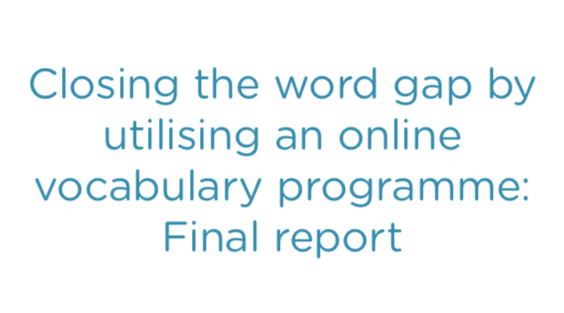
The average worker in the UK with very low literacy will earn approximately 7.1% less than if they had a basic level of literacy (Pro Bono Economics, 2021). The economic cost to the UK is enormous: illiteracy and low reading levels cost the economy £80 billion (World Literacy Foundation).
Fewer employment opportunities can contribute towards making choices that could result in a criminal conviction. Hence, the fact that over 57% of people in prison are functionally illiterate (A Ministry of Justice (MoJ) report in 2022).
But we know that with ReadingWise it doesn’t have to be that way. And it’s our ambition that the world should know it too.
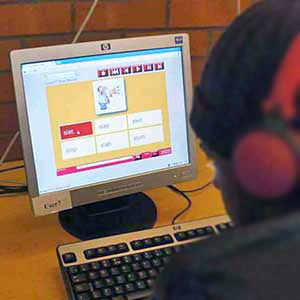
ReadingWise literacy intervention programme and modules: Years in development
An improvement in reading age of over 9 months on average, in a programme that takes just 20 hours to deliver. Sounds too good to be true?
Well, no actually. Our team of specialists have been working on building the world’s most effective literacy programmes for over last eight years, working from first principles to develop a programme that creates a rapid improvement in reading attainment, at minimum cost to schools.
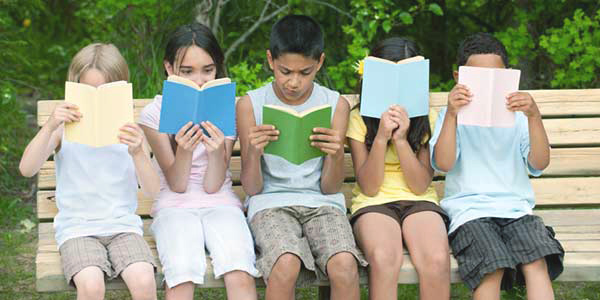
The programme was originally developed in India to help poverty-stricken people learn to read and write and therefore to find better employment. Called Tara Akshar, the Hindi version of ReadingWise is now India's most effective literacy programme and, since it began in 2006, it has taught over 2.5 million people to read, many of whom had never been to school before.
Research-backed, evidence-based literacy programme
Although we knew our programme was hugely successful in India, could it help children who struggled to read in this country? To find out, we undertook a pilot randomised control trial at five schools in England. The report can be found here.
Even more interestingly was that there was no measurable difference in improvements between classes run by teaching assistants and those run by a teacher.
In the study, 160 children aged 6-15 took part. The sample met the selection criteria by being the lowest 20% in terms of reading ability in each class. Pupils undertook the 20 hour programme in groups of 10 over 4-10 week period.
The results were astounding to the schools taking part, but matched what we had found in India. The ReadingWise English programme was found to significantly increase reading ages, relative to controls, measured on a standardised Burt and Schonell scales. Further large-scale randomised controlled trials were carried out in 2016 to confirm these findings (find out more in our DfE-funded RCT: SSIF Reading Attainment Study).
The research and DfE-funded study found that the average increase in reading age across all pupils was over 9 months ⏤ remarkable for a reading intervention that took only 20 hours to deliver. The rate of improvement was no different for those children who had already been diagnosed with dyslexia and those who were just poor readers.<
Furthermore, we asked the teachers concerned to tell us which pupils had behaviour problems, irrespective of any official diagnosis. The trial found that these pupils did much better than average. In fact, their increase in reading age was 12.4 months ⏤ a boost of one complete year.
Even more interestingly was that there was no measurable difference in improvements between classes run by teaching assistants and those run by a teacher.
Ongoing research
The results of the pilot study were a great success, but we’re not going to rest on our laurels when it comes to testing. We continue to monitor, evaluate and refine the programme as we work in partnership with schools, local authorities and multi-academy trusts.
How 23 Multi-Academy Trust Secondary Schools Measured Improvements in Literacy after 12 months using ReadingWise
One of our most recent case studies is from Star Academies, a prestigious mixed Multi-Academy Trust (MAT) that has been using ReadingWise since March 2022 (read the in-depth report on this, here).
Critical to success was matching the ReadingWise programmes to the needs of each pupil before the relevant modules and interventions could be implemented.
To achieve this across over twenty thousand pupils, a careful pre and post-implementation evaluation programme was put in place using standardised reading (NGRT) assessments as the benchmark. Based on the results, students were placed in one of four categories before the ReadingWise roll-out:
- Category 1: fluent readers (standardised score of 100+);
- Category 2: pupils at risk of not accessing the curriculum (standardised score of 85 to 100);
- Category 3: early readers (score below 85);
- Category 4: pupils new to English.
With the establishment of these cohorts, timetabling was put in place to ensure needs were met in a methodical, measurable way. Pupils’ needs were matched and calibrated to the four core ReadingWise modules: Zip, Vocab, Comprehension, and Decoding.
ReadingWise Star Academies Collaboration: Table of Results After 12 Months (September 2022 - Summer 2023)
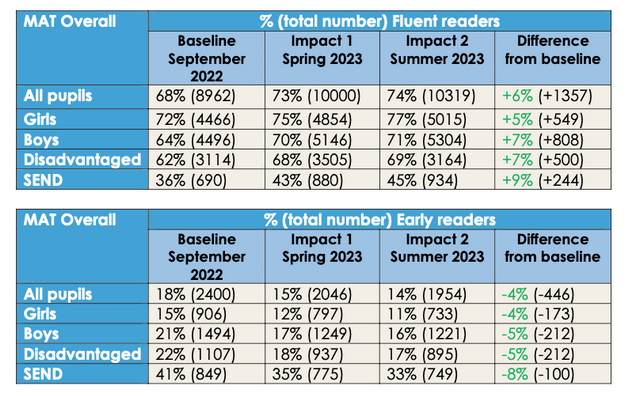
After 12 months of working with ReadingWise across 23 secondary schools, Star Academies used NGRT to benchmark reading fluency and were impressed with the following results:
- The overall baseline improvement was 6%: An additional 1,357 pupils are more fluent readers.
- There are also 446 fewer ‘early readers’ in the same timeframe (a -4% improvement). Students who were struggling with reading are now doing much better after benefiting from the ReadingWise modules and personalised interventions in the classroom.
- For disadvantaged students, there is a 7% improvement in reading after 12 months
- For SEND (special educational needs and disabilities), there is a 7% improvement in reading fluency after 12 months
“ReadingWise is our trust-wide reading intervention strategy for all 23 of our secondary schools. They go above and beyond with training and product support. I’m delighted to say that since it was rolled out in 2022, the number of fluent readers has increased significantly and this includes disadvantaged pupils and those with special educational needs.”
Lisa Crausby OBE, Executive Director, Star Academies
See what other headteachers and literacy leads say about ReadingWise in our case studies and frequently updated testimonials.
Boost your schools and MATs literacy results: Arrange your 20-minute demo at a time to suit you.
Find out everything you need to know about ReadingWise with our friendly, knowledgeable team.
Cambridge Uni: Reading More Wisely
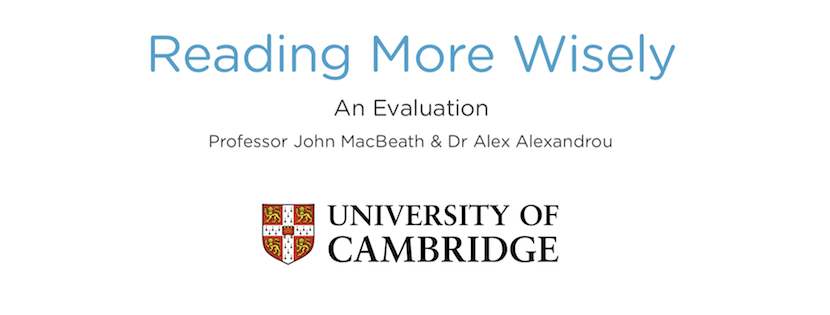
In this study, Cambridge University examined several themes of online literacy intervention including 'place', 'travel', and 'independence'.
What’s Missing from the Reading Strategy
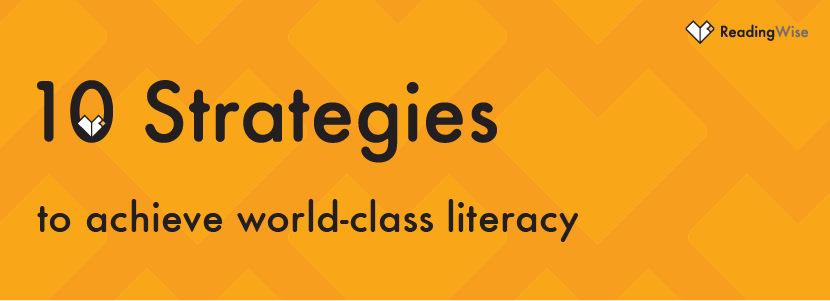
Findings from a 2014 survey of over 500 teachers in UK schools exploring perceptions of government policy on reading
DfE-funded RCT
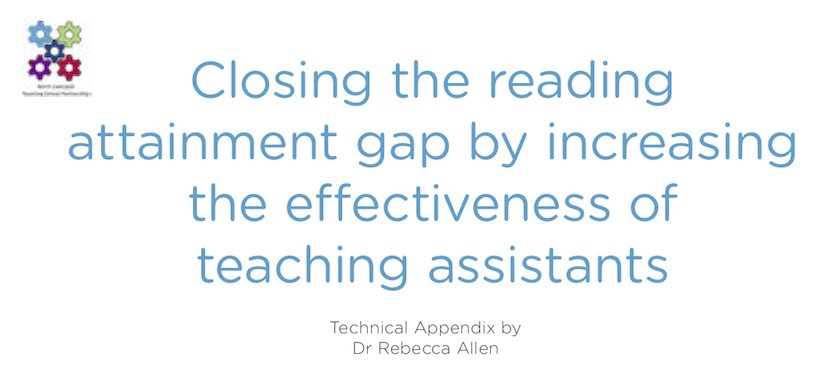
The SSIF Reading Attainment report offers compelling insight into the viability of increasing the effectiveness of teaching assistants to close the literacy attainment gap. The project was led by the North Liverpool Teaching School Partnership.
